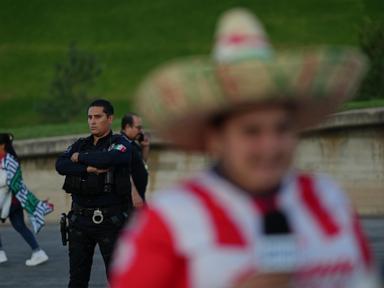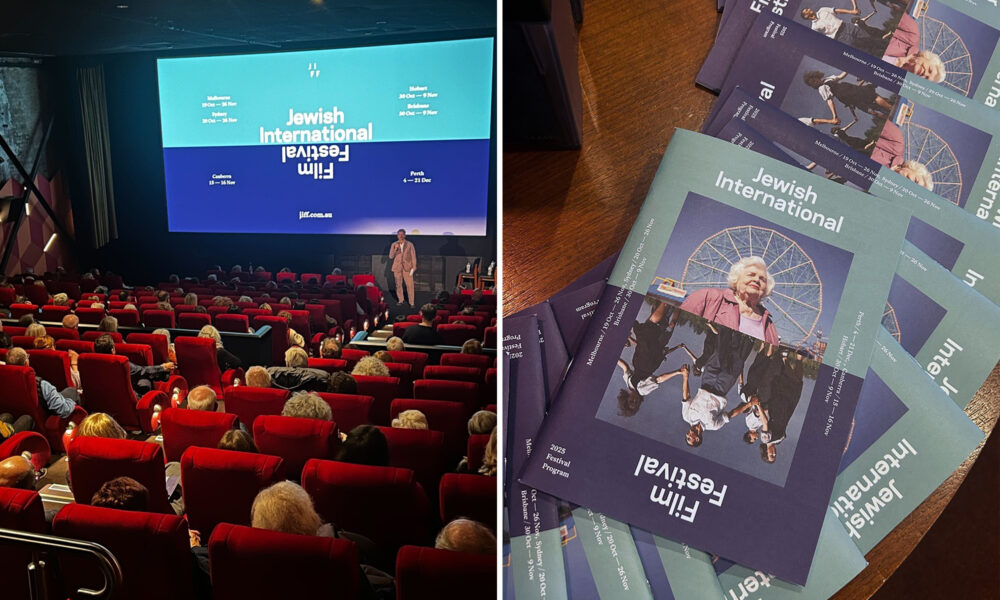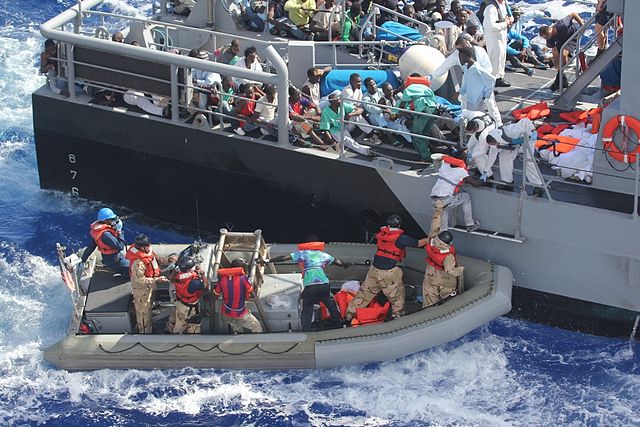The lead-up to the 2026 FIFA World Cup in Guadalajara is marked by vibrant fanfare, yet it starkly contrasts with the grim reality of cartel violence gripping the region. As soccer enthusiasts chanted “Mexico! Mexico!” outside the stadium in Zapopan, they passed through layers of security, including police officers, bomb-sniffing dogs, and drone jammers. Meanwhile, just a few miles away, the National Guard was deployed to assist volunteers searching for the thousands of individuals who have disappeared in Mexico, highlighting a disturbing duality in Jalisco.
The Contrast of Celebrations and Tragedy
Jalisco, home to the Jalisco New Generation Cartel, is preparing to host four World Cup matches in June 2026. The state boasts large soccer venues and fan zones, yet it is also notorious for its crime rates and high number of disappearances. Currently, Jalisco leads the nation with around 1,000 reported disappearances in 2023 alone, reflecting a 30% increase compared to the same period last year, according to Mexico’s National Search Commission.
Despite the overwhelming evidence of violence, both fans and officials appear unfazed by the implications of hosting an international sporting event in cartel territory. Many fans believe in a temporary truce between criminals and authorities. Javier Rodríguez, an 18-year-old college student heading to the match, stated, “If you don’t get yourself into trouble, nothing will happen.” His sentiments reflect a common belief in the ability of major events to bring about enhanced security measures.
In stark contrast, Indira Navarro, part of the Jalisco Search Warriors, and her fellow volunteers dug through the concrete slab of an abandoned house, searching for human remains following a tip-off. Navarro’s brother has been missing since 2015, and she has faced threats since publicly advocating for the search for the disappeared. The volunteers, who devote their time to uncovering the fates of missing persons, did not find any remains that day, but their efforts symbolize the ongoing struggle against the violence that persists in the region.
The Cartel’s Influence and Government Response
The Jalisco New Generation Cartel has gained notoriety as one of Mexico’s most powerful criminal organizations, with operations across 21 of the country’s 32 states. Officials have previously downplayed the cartel’s influence, suggesting that fewer criminal organizations allow for better security management. Roberto Alarcón, Jalisco’s state security strategy coordinator, remarked, “Not having a great number of criminal groups like other states allows security authorities to attack these groups in a better, more controlled way.” He added that major crimes in Jalisco are trending downward.
Security analyst David Saucedo anticipates a tacit agreement between the cartel and the government, wherein law enforcement may hold off on pursuing cartel leaders to maintain peace during the festivities. He noted, “I think both sides will agree to a truce that, obviously, might not last very long. But it is convenient for everyone.” Saucedo cautioned that this truce does not signify a cessation of cartel activities, as organized crime may exploit the World Cup to enhance illegal operations.
In discussing the upcoming World Cup, Jalisco Governor Pablo Lemus highlighted the potential economic benefits of the event, projecting that it could generate up to $1 billion in revenue and create 7,000 jobs in tourism and construction sectors. “The 2026 World Cup is a great opportunity for Jalisco to position itself before the world,” Lemus stated, emphasizing investment initiatives and preparations.
As preparations ramp up, authorities are implementing extensive security measures, including the installation of an additional 3,000 surveillance cameras, which will increase the state’s total to over 10,000 cameras. These measures are seen as a legacy of the World Cup that could enhance safety for residents long after the tournament concludes.
Yet, for individuals like Navarro, the excitement surrounding the World Cup feels like a façade that obscures the ongoing violence and suffering in Jalisco. “They want to wash away everything that has to do with the issue of the disappeared,” she said firmly. “But they won’t be able to do so because we’re going to continue fighting.”
This juxtaposition of hope and despair showcases the complexities facing Jalisco as it prepares to welcome the world while grappling with its deep-seated issues.






